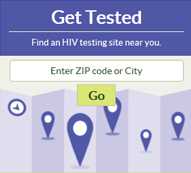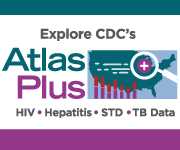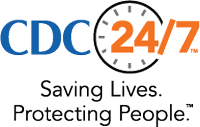First National Transgender HIV Testing Day
April 15, 2016
On April 18, the Centers for Disease Control and Prevention (CDC) will join our partners to observe the inaugural National Transgender HIV Testing Day, sponsored by the Center of Excellence for Transgender Health, University of California, San Francisco. The Center for Excellence is one of CDC’s Capacity Building Assistance Provider Network partners. This new day of action focuses on HIV testing, prevention, and treatment among transgender people and will encourage local testing events and campaigns for the transgender community.
Transgender people, particularly transgender women, are disproportionately affected by HIV. A 2013 systematic review found that the estimated HIV prevalence (percentage of a population living with HIV) among transgender women was 22% in the United States. Another analysis estimated that HIV prevalence among African American transgender women was as high as 56%. Because transgender people, especially transgender women, are at high risk for acquiring HIV, there is an urgent need to expand HIV testing—the critical first step along the continuum of care—and prevention and treatment initiatives to reach the transgender community.
Transgender people often experience barriers to accessing HIV services because of misperceptions and stigma, lack of knowledge about transgender issues, and social issues such as being underinsured or not having adequate housing or transportation. Eliminating these barriers will help reduce HIV infections among transgender people and provide better care to those living with HIV.
CDC and other organizations are accelerating the implementation of high-impact HIV prevention strategies for the transgender community. These initiatives support the National HIV/AIDS Strategy’s goals of reducing health-related disparities and strengthening the nation’s capacity to deliver HIV care for transgender people. The Center of Excellence for Transgender Health recently released the Transgender HIV Testing Toolkit, which will support local efforts to increase knowledge of HIV status and help educate health care providers on the testing needs of the transgender community. We encourage you to use it and share it.
Some of CDC’s HIV testing and prevention activities that focus on the transgender community include:
- Capacity building assistance to implement strategies for HIV prevention and strengthen the infrastructure of health departments, community-based organizations, and clinics that serve transgender people.
- Funding for community-based organizations that provide services to young transgender people of color and for health departments to implement pre-exposure prophylaxis (PrEP) services and data-to-care activities prioritizing transgender people at high risk of HIV infection.
- Act Against AIDS communication materials to reach transgender people.
- Doing It, which encourages all adults to get tested for HIV and know their status, includes images and testimonial videos featuring transgender leaders.
- Let’s Stop HIV Together, which raises awareness about HIV and fights stigma, includes the stories of transgender women.
- HIV Treatment Works, which encourages people living with HIV to stay in care, features a transgender woman’s story of staying healthy while living with HIV.
Thank you for the vital work you are doing to increase awareness of HIV status and prevent HIV in the transgender community. We have much work left to do, but by using proven prevention tools and working with the transgender community, we can reduce HIV infections and disparities among transgender people.
Sincerely,
/Jonathan Mermin/
Jonathan H. Mermin, M.D., MPH
RADM and Assistant Surgeon General, USPHS
Director
National Center for HIV/AIDS, Viral Hepatitis, STD, and TB Prevention
Centers for Disease Control and Prevention
www.cdc.gov/nchhstp
/Eugene McCray/
Eugene McCray, MD
Director
Division of HIV/AIDS Prevention
National Center for HIV/AIDS, Viral Hepatitis, STD, and TB Prevention
Centers for Disease Control and Prevention
www.cdc.gov/hiv
- Page last reviewed: June 28, 2016
- Page last updated: June 28, 2016
- Content source:


 ShareCompartir
ShareCompartir


